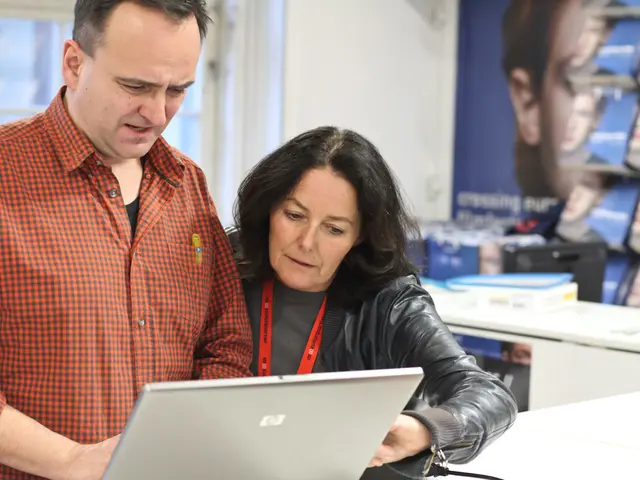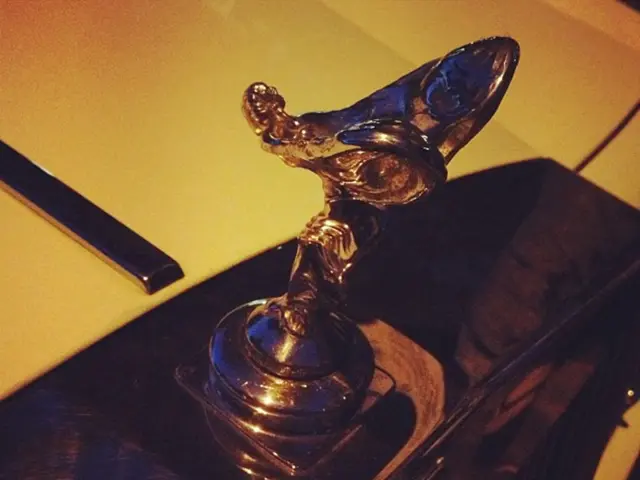Microsoft faces investigation in Brazil for allegedly promoting Edge browser as default, stifling competition in the market - "Microsoft alleged to impede browser competition consistently"
In a move to level the playing field in the browser market, Opera has filed an antitrust complaint with Brazil's Administrative Council for Economic Defense (CADE) against Microsoft. The Norwegian browser company accuses Microsoft of using anticompetitive practices to favour its Edge browser on Windows devices.
The complaint highlights several issues, including Microsoft's exclusive pre-installation of Edge on Windows devices, which limits user choice. Opera argues that this practice locks out browsers like Opera from important pre-installation opportunities.
Microsoft is also criticised for using design tactics and dark patterns that frustrate and discourage users from downloading and using alternative browsers. The company is accused of deploying obtrusive banners and messages discouraging users from downloading alternative browsers at the very moment they are searching for those browsers on Edge.
Opera's complaint also requests Microsoft to stop preventing PC manufacturers from preloading alternative browsers and setting them as default. The company argues that these practices impede free and effective consumer choice on PCs.
The EU Commission has also been keeping a close eye on Microsoft's practices. In 2024, a report commissioned by Mozilla suggested that Microsoft uses harmful designs and deceptive tactics to push its Edge browser to Windows users. A handful of Microsoft services, including Bing, Windows, LinkedIn, and Edge, were listed as "gatekeeper services" by the EU Commission in 2024. However, Microsoft argued that Edge and Bing hadn't hit the threshold to be considered gatekeeper services, but the commission exempted them from DMA regulation as they weren't dominant enough in digital markets.
Mozilla called for intervention from regulators to remedy the issue, indicating that this places third-party browsers like Firefox at a competitive disadvantage. Opera hopes Microsoft will cease implementing these dark patterns that push users towards Edge.
Microsoft has been given six months by the EU Commission to comply with the DMA (Digital Markets Act) or risk attracting hefty fines and penalties. If Opera's complaint in the EU Courts leads to the designation of Edge as a gatekeeper service under the DMA, it could potentially change the landscape of the browser market on Windows devices.
In response to the complaint, Microsoft has not yet issued a statement. However, Opera states that these deceptive ploys and dark patterns are only getting more severe despite lodged complaints. The company hopes that regulatory action will restore fair competition in the browser market on Windows devices.
[1] Opera's Antitrust Complaint Against Microsoft Over Edge Browser Practices (2025) [2] Opera Seeks to End Microsoft's Exclusive Pre-installation of Edge (2025) [4] Opera Calls for Fair Competition in the Browser Market on Windows Devices (2025)
- Opera shared concerns about Microsoft's practices, claiming that exclusive pre-installation of Edge on Windows devices restricts user choice and distribution opportunities for competing browsers like Opera.
- Microsoft's usage of design tactics such as obtrusive banners and messages that discourage users from downloading and using alternative browsers is a focus of Opera's antitrust complaint.
- Similar to Mozilla, Opera hopes for regulatory intervention to stop Microsoft from preventing PC manufacturers from pre-loading alternative browsers and setting them as default.
- In light of the EU Commission's report in 2024, which indicated Microsoft's use of harmful designs and deceptive tactics to favor Edge on Windows, Opera's complaint calls for an end to these dark patterns that create a competitive disadvantage for third-party browsers such as Opera.
- With the upcoming DMA (Digital Markets Act) enforcement by the EU Commission and the potential designation of Edge as a gatekeeper service, the landscape of the browser market on Windows devices might undergo significant changes, as Opera seeks to promote fair competition.




